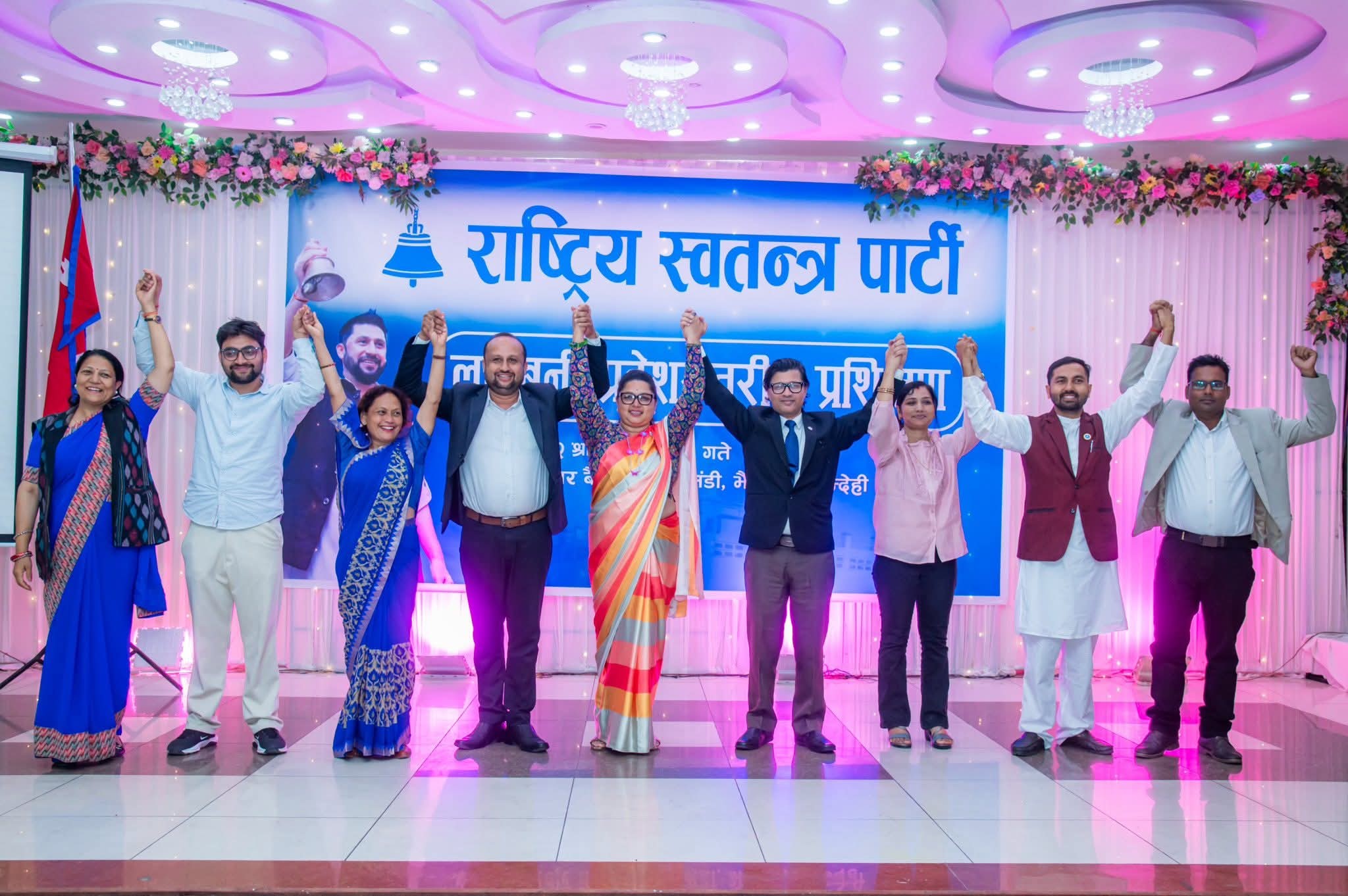The Rastriya Swatantra Party (RSP) is conducting a primary election starting Thursday to select a candidate for Rupandehi-3.
In simple terms, a primary election is a method where local members of a party vote to choose a candidate for an election.
No other political party in Nepal has adopted such a method for candidate selection.
Although the RSP had earlier announced a primary election for the Ilam-2 by-election, it ultimately made Milan Limbu the candidate on leaders’ instructions.
This time, the party is conducting a primary election under the leadership of Joint General Secretary Bipin Kumar Acharya by formulating a candidate selection procedure. However, even though it is called a primary election, the procedure has been designed in such a way that the top leaders will still dominate the candidate selection, with their decisions being decisive.
Nine individuals are competing to become the RSP’s candidate for the by-election in Rupandehi-3 scheduled for November 3.
The aspirants are Sulabh Kharel, Parthivendra Upadhyaya, Lekh Jung Thapa, Gyanu Paudyal, Jit Bahadur Gupta, Kusum Maharjan, Rachana Chhetri, Punam Kumari Agrawal, and Madhu Prasad Aryal.
The RSP is holding a competition among them starting Thursday.
Although the party had earlier said it would shortlist three candidates and hold a competition among them, it has listed all nine candidates on its mobile app. However, it has also included a "no vote" option this time, allowing voters to choose none of the candidates if they do not like any of them.
"A 'None of the Above' option has been implemented in the primary election. This will ensure that voters have the right to not vote for any candidate if they do not prefer any. If the 'None of the Above' option receives the highest number of votes, the candidacies of all the candidates will be automatically canceled, and new candidates will be selected for the constituency, followed by another round of voting," said Joint General Secretary Acharya.
According to the procedure adopted this time by the RSP, the votes of party members from the constituency will account for 40 percent of the weightage in selecting the candidate. The votes of leaders in the party’s local committees will carry a weightage of 5 percent. The remaining 55 percent weightage will be given to the votes of central leaders.
Out of this 55 percent, the votes of central members will carry a weightage of 5 percent. The remaining 50 percent weightage will be given to the votes of leaders designated by the secretariat. These leaders will evaluate the candidates based on their presentations, interviews, future plans (which the RSP refers to as a “blueprint”), and which community they belong to.
The RSP has moved forward with the candidate selection process in the presence of central leaders, including Acting Chairman DP Aryal and Vice-chairman Swarnim Wagle.
Aspiring candidates must present a “blueprint” with long-term plans that address national needs and the public expectations in the constituency.
Candidates will also be evaluated based on their political analysis, understanding of policy-making, ability to implement plans, alignment with the party's values, philosophy, and principles, integrity and ethics, education, professional experience, leadership skills, and other factors.
If the candidate is a woman, Dalit, Janajati, Tharu, Muslim, Madhesi, from a backward region, or a person with disability, they will automatically receive a 5 percent vote under inclusivity criteria.
The selection procedure and structure clearly show that the party’s center will dominate the candidate selection for any constituency.
We asked RSP spokesperson Manish Jha why, despite calling it a primary election where party members from the constituency have the right to vote, leaders have been given decisive weightage in the vote distribution.
In response, he explained that the party has not yet been able to implement the Leadership Academy practice. Although the party's statute, in Part 19, includes the concept of a Leadership Academy and a Candidate Club, the RSP has not yet put it into practice.
"Just as the Nepal Army requires passing the Staff College and getting certified from there, we are planning to ensure that only those certified by the Leadership Academy, who have passed from there, can become candidates. We could not implement this method for the Rupandehi-3 election. Therefore, because we had to distribute votes for those processes as well, the vote weightage of party members from the constituency has been reduced," he said.
Jha said that the Leadership Academy is not yet in practice but once it is implemented, the vote weightage of party members from the constituency concerned will increase to 85 percent. At that time, the district and provincial committees, the central committee, and inclusivity will account for only 15 percent of the vote weightage.

